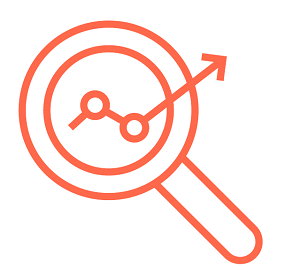
How to use data science to future-proof your travel program
You can download a handy, sharable version of this article here.
The amount of data being collected in organizations is growing. However, most companies have yet to fully harness the power of data, and are still making uninformed decisions.
Well-managed data has the power to give you actionable insights to meet your business goals. This can drive decisions to effectively manage travel and expenses (T&E), uncover a new supplier base and better manage your employees’ experience. Then you can begin to accurately predict trends in the travel industry and plan solutions to potential obstacles before they happen.
So where do you start?

1. Invest in data consolidation and insights
By pulling together the wide variety of data sources available such as your travel management company, expenses, and credit card data within your company, you will get a more accurate reflection of your overall spend across markets and booking channels. CWT’s advanced analytic tools can help you to simplify your data flow and determine the best strategies to meet your travel goals.
2. Understand the impact travel has on the wider business
Look beyond the traditional data sources and include other departments (such as HR and sales); it will then begin to tell a different story of your organization and employees, and uncover insights that travel data alone cannot achieve. For example, the amount of return-on-investment (ROI) that results from business travel, to the potential impact of a change in travel policy, and the effects of travel on your employees’ well-being and productivity.

3. Use data for predictive analysis
This shift from reactive data analysis to a more proactive approach will put you one step ahead of the trend and be well-prepared to deal with potential obstacles, economic fluctuations and the impact of global events. This way, you can truly unleash the power of business travel and transform the conversation from cost to strategic investment.

Predict your way to better business decisions and employee experience with data
The accuracy of your forecasts will only be as good as the quantity and quality of data you use to generate them. At CWT, we strongly believe that having full visibility of your travel-related spend, combined with the insight of how that fits within other departments such as HR, finance, and sales, is the best formula to allow your company to accurately predict the future of your business.
1. Predict fluctuations in demand
Business travel is often planned at short notice, which may mean that your preferred accommodation is above the rate cap, whether or not it’s due to a major conference or peak tourism season. The result is time wasted on reviewing less ideal hotels that are located further away.
Predictive analytics can help you anticipate changes in demand and introduce variable rate caps. Algorithms can predict price fluctuations, and rate caps can be raised or lowered accordingly - even better, it can also recommend when a trip should be booked to get the best fares.
So if an employee is traveling to Tokyo during the Rugby World Cup, for example, they’ll have a little more to spend to get a hotel that’s convenient.
2. Predict changes in supply
The airline and hotel industries are rife with change. Mergers and acquisitions, new alliances, strikes, bankruptcies and a myriad of other factors can change the options available to travelers.
With the power of data science, companies can get better at predicting how these changes in the supplier landscape will affect their travel programs, and minimize the impact on their travelers.
For example, knowing that there is a decrease in supply on a route frequented by your company in advance will give you some time to negotiate alternatives with other suppliers before you find yourself paying an unnecessary premium on airfares.
3. Predict flight disruptions
Research by CWT found that the biggest concern when on a business trip is facing travel disruptions. The good news is that we’re already working on a solution for this.
CWT has partnered with a tech start-up that uses predictive analytics to identify delay patterns across millions of flights to forecast disruptions. This prediction factors in the historical performance of an airline, seasonality, the day and time of the flight, and evolves as the flight gets close to its departure date to include weather forecasts and congestion at various airports before indicating how “risky” the flight is.
This is especially helpful to those who are not frequent travelers and time-strapped executives in creating a more pleasant and productive traveler experience, while saving costs at the same time.

